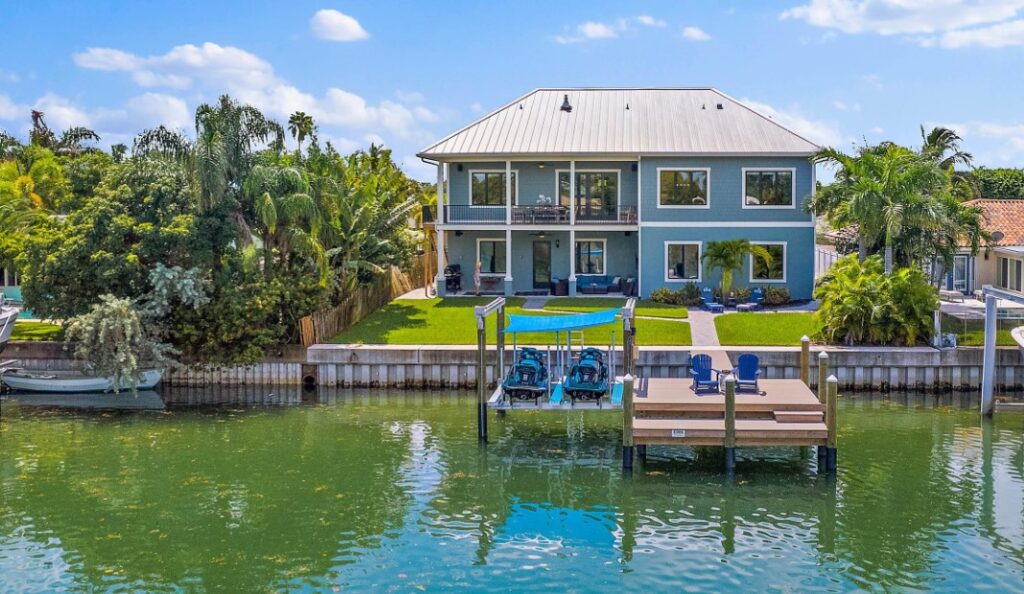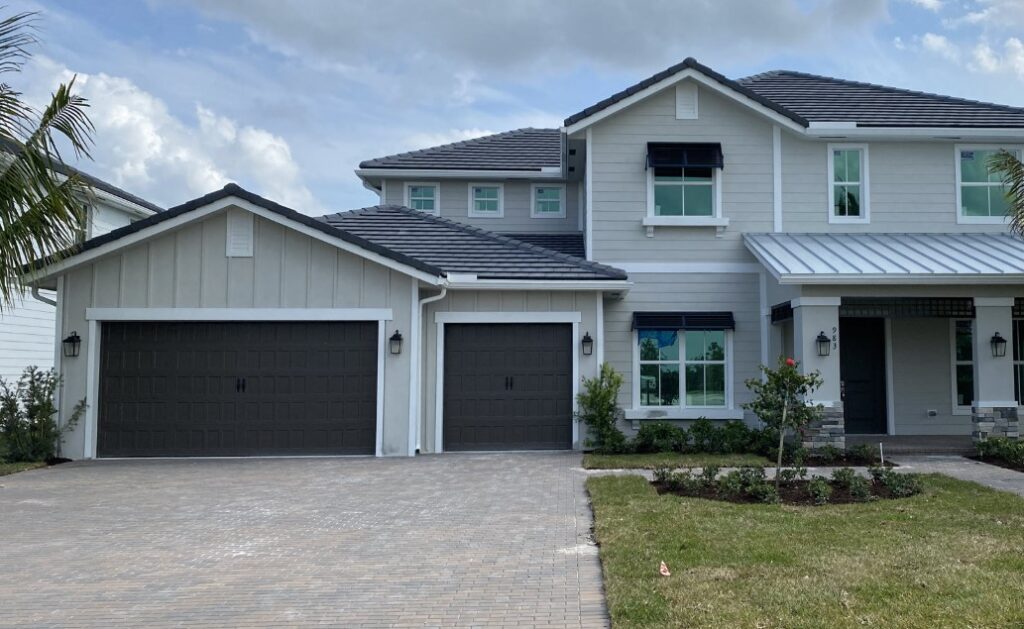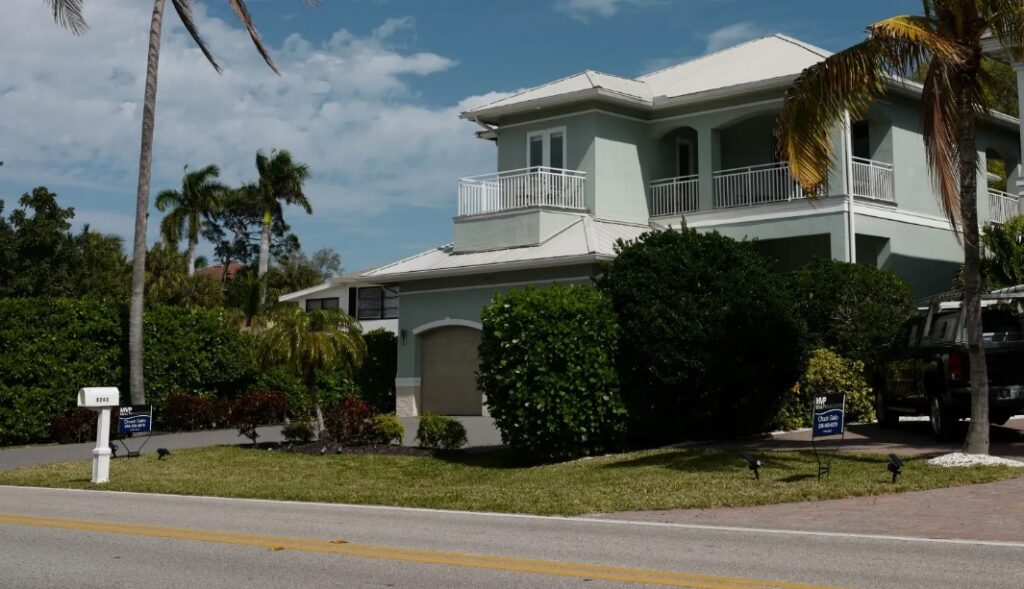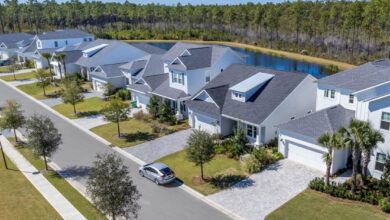Homes for Sale in Florida
Florida is one of the most desirable states to live in due to its beautiful weather, coastal living, and diverse range of properties. Whether you’re looking for a vacation home, a permanent residence, or an investment property, Florida offers something for everyone. In this guide, we’ll cover everything you need to know about buying homes for sale in Florida, from market trends to the best cities to invest in, to how to find the perfect home for your needs.
Why Choose Florida for Your Next Home?

Florida is renowned for its gorgeous beaches, warm climate, and tax advantages. The state boasts a wide variety of properties, from beachfront homes to city apartments, and even luxurious estates in golf communities. Whether you’re seeking tranquility or the excitement of urban life, Florida provides the perfect environment for your lifestyle.
- Great Climate Year-Round
Florida is famous for its tropical and subtropical climate, with warm weather throughout the year. This makes it an ideal place for people looking to escape colder climates or enjoy sunny days year-round. - No State Income Tax
Florida is one of the few states in the U.S. with no state income tax. This is a major benefit for residents and investors alike, as it can lead to significant savings over time. - Diverse Real Estate Market
Whether you’re looking for an affordable starter home, a luxury mansion, or a rental property, Florida’s real estate market offers a wide array of options in nearly every price range.
Top Florida Cities for Homes for Sale

When it comes to finding homes for sale in Florida, location is key. The following cities are some of the best places to buy a home, each offering unique benefits and lifestyle opportunities:
Miami: The Heart of Florida Real Estate
Miami is not only known for its stunning beaches and vibrant nightlife but also for its thriving real estate market. Whether you’re interested in a chic condo in South Beach or a luxurious waterfront property, Miami offers a wide range of options.
Benefits of Buying in Miami
Miami is a global city, attracting investors from all over the world. The city’s booming economy, great climate, and diversity make it a top choice for homebuyers. With a variety of neighborhoods to choose from, buyers can find something that fits their needs.
- Pros: Diverse real estate market, cosmopolitan lifestyle, thriving economy
- Cons: High property taxes, expensive compared to other Florida cities
- Price Range: $300,000 – $10,000,000+ depending on location and property type
Orlando: The City of Endless Opportunities
Orlando, home to Walt Disney World, is a family-friendly city with a growing real estate market. It is a popular choice for vacation home buyers and long-term residents alike.
Benefits of Buying in Orlando
Orlando is known for its tourism industry, and owning property here can offer substantial rental income opportunities. The city’s affordable housing market compared to other Florida cities makes it an attractive place for first-time homebuyers and investors.
- Pros: Great for families, affordable real estate, excellent rental income potential
- Cons: Tourist-driven economy can be unpredictable
- Price Range: $150,000 – $3,000,000
Tampa: Coastal Living at Its Best
Tampa is quickly becoming one of Florida’s hottest markets. Located along the Gulf Coast, it offers beautiful waterfront properties and a growing job market.
Benefits of Buying in Tampa
Tampa combines the best of both worlds: the relaxed lifestyle of coastal living with the amenities of a big city. The city is growing rapidly, and its real estate market offers both residential and investment opportunities.
- Pros: Affordable coastal real estate, growing economy, great weather
- Cons: Higher cost of living in certain neighborhoods
- Price Range: $200,000 – $5,000,000+
Understanding the Florida Housing Market

The Florida housing market is one of the most dynamic and diverse real estate markets in the United States. Understanding its intricacies is essential for anyone looking to buy a home, invest in real estate, or even just explore the possibilities in this booming region. Florida’s housing market is influenced by a variety of factors, ranging from the state’s economic growth, population influx, and seasonal demand, to the impact of natural disasters and local policies. Below, we dive deep into these factors to provide a comprehensive overview of what buyers and investors need to know about the Florida housing market.
1. Economic Growth and Job Opportunities
Florida’s economy plays a pivotal role in shaping its real estate market. With a diversified economy driven by sectors such as tourism, agriculture, aerospace, healthcare, and technology, Florida offers an attractive environment for job seekers and entrepreneurs. This robust economic growth translates to a steady demand for housing, particularly in metropolitan areas like Miami, Orlando, Tampa, and Jacksonville.
Impact on the Housing Market:
- Job Creation: As businesses expand and relocate to Florida, the state creates new job opportunities that draw workers from other parts of the country. This influx of new residents increases demand for housing in certain regions, driving up home prices and rents.
- Affordable Housing Shortage: While the state’s job market is thriving, there has been growing pressure on the housing market to provide affordable options. As more people move to Florida for work, the competition for homes, particularly affordable ones, becomes more intense, often leading to bidding wars and escalating prices in some cities.
- Economic Resilience: Despite challenges like natural disasters or national economic downturns, Florida’s economy tends to bounce back quickly. The state’s low-tax environment (no state income tax) and reliance on industries like tourism and healthcare, which are less susceptible to economic fluctuations, contribute to the market’s resilience.
2. Population Growth and Migration Trends
Florida’s population has been growing consistently for decades. The state attracts a diverse range of residents, including retirees, young professionals, families, and international investors. As of recent estimates, Florida’s population exceeds 22 million people and continues to grow at a rapid pace.
Why Florida’s Population Growth Matters:
- Retirees: Florida has long been a favorite destination for retirees due to its warm climate and favorable tax laws. Retirees from northern states like New York, New Jersey, and Illinois flock to Florida for the promise of lower property taxes and no state income tax. This demographic often seeks properties that are affordable, low-maintenance, and located in age-restricted communities or near golf courses and amenities tailored to older adults.
- Young Professionals and Families: In addition to retirees, Florida is also attracting younger generations of professionals. Cities like Orlando and Tampa have seen significant growth in their tech and service industries, while the greater Miami area continues to be a hub for finance, entertainment, and international trade. Many young professionals and families are seeking suburban neighborhoods with good schools, parks, and easy access to employment hubs.
- Out-of-State and International Buyers: Migration from other parts of the United States—particularly from high-tax states like California and New York—has accelerated in recent years. Florida also continues to attract international buyers, particularly from Latin America, Europe, and Canada. These buyers are often looking for vacation homes, second homes, or investment properties, which contributes to the demand for high-end homes and vacation rentals.
3. Seasonal Demand and Tourism
Florida’s tourism industry is a significant driving force behind its housing market. As the most popular tourist destination in the U.S., Florida experiences seasonal fluctuations in demand, which affects both the rental market and the sales market.
How Tourism Affects Real Estate:
- Vacation Homes and Short-Term Rentals: Florida’s beaches, theme parks, and natural attractions make it a prime location for vacation homes. Many buyers—both domestic and international—purchase homes in popular tourist areas like Miami, Orlando, and the Florida Keys with the intention of renting them out short-term when not in use. Platforms like Airbnb and Vrbo have become a common way for property owners to earn income from these homes, further driving up demand.
- Winter Migration (Snowbirds): A significant portion of Florida’s population growth comes from “snowbirds,” individuals who migrate from the northern states during the colder months. These seasonal residents often rent or purchase homes in Florida for the winter months, providing a boost to the rental market and temporarily inflating demand in certain areas.
- Economic Impact on Housing: While tourism boosts the economy, it also contributes to the rise in demand for housing in some areas. Short-term rentals in high-demand regions, such as Miami Beach and the Orlando theme parks, often push out long-term renters and locals, further driving up home prices and rents.
4. Florida’s Real Estate Developments and Urbanization
Florida is known for its constant growth and new real estate developments. From high-rise condos in Miami to sprawling master-planned communities in suburban Orlando, Florida has seen considerable development in both residential and commercial real estate over the past few decades.
Key Development Trends:
- Master-Planned Communities: Many of Florida’s new housing developments consist of master-planned communities, which are designed to offer a range of housing options along with amenities like parks, schools, shopping centers, and recreational facilities. These communities are particularly popular among families and retirees looking for convenience and a sense of community.
- Urbanization and Gentrification: As more people flock to Florida’s major cities, many urban areas are undergoing gentrification. This trend involves the renovation of older neighborhoods to accommodate newer, wealthier residents. In places like Miami’s Wynwood district or Tampa’s downtown area, older buildings are being transformed into luxury condos, restaurants, and office spaces, which raises the property values in those neighborhoods.
- Luxury and Waterfront Homes: Florida’s coastal properties remain some of the most sought-after real estate in the country. Waterfront homes, particularly in cities like Miami, Fort Lauderdale, and Sarasota, command premium prices due to the scarcity of available land and the desire for exclusive, scenic living. Demand for luxury properties continues to grow, attracting both domestic buyers and wealthy international investors.
5. Impact of Natural Disasters and Insurance Costs
Florida is no stranger to natural disasters, particularly hurricanes and tropical storms. While these events are often unpredictable, their impact on the housing market is significant. Homes in flood zones or areas prone to hurricanes often require expensive insurance policies, which can make owning property in certain areas more costly.
How Natural Disasters Influence the Market:
- Insurance Costs: Due to Florida’s vulnerability to hurricanes and flooding, property insurance rates in the state are generally higher than in many other parts of the country. Homebuyers must factor these higher insurance costs into their budgets, especially when purchasing homes in coastal areas or flood zones.
- Home Value Fluctuations: The threat of hurricanes and other natural disasters can sometimes cause home values in high-risk areas to fluctuate. After a major storm, there may be a temporary dip in home prices due to damages or the fear of future disasters, followed by a rebound as reconstruction takes place. Additionally, some buyers may be deterred from purchasing homes in certain areas due to the perceived risk.
- Building Codes and Resilience: In response to the threat of natural disasters, Florida has some of the strictest building codes in the country. These codes are designed to make homes more resilient to hurricanes and other extreme weather events. Homes built to these standards are often more expensive but also safer and more resistant to storm damage.
6. Housing Affordability and Market Accessibility
Housing affordability is one of the biggest challenges facing Florida’s housing market today. As demand for homes increases across the state, so does the price of properties, particularly in desirable urban and coastal areas. The rising cost of land and construction materials also contributes to the higher prices, making it harder for many residents to find affordable homes.
Addressing the Affordability Gap:
- Low Inventory and High Demand: The combination of high demand and low inventory in certain markets, particularly in South Florida, is driving home prices up. Many buyers find themselves competing in a seller’s market where bidding wars and multiple offers are the norm.
- First-Time Homebuyers: For first-time buyers, affordability remains a challenge. While mortgage rates have remained relatively low over the past decade, prices have risen faster than wages in many areas, making it difficult for first-time buyers to enter the market without assistance.
- Affordable Housing Initiatives: To address the affordability crisis, some local governments and developers are focusing on building more affordable housing units, particularly in growing suburban areas. These initiatives may provide more options for lower-income buyers, but they remain a challenge in high-demand urban centers.
How to Buy a Home in Florida

The process of buying a home in Florida is similar to that in other states, but it’s important to understand the local laws and regulations before diving into the market. Here’s a step-by-step guide:
Step 1: Get Pre-Approved for a Mortgage
Before you start looking at homes, it’s essential to get pre-approved for a mortgage. This will give you a clear idea of your budget and show sellers that you’re a serious buyer.
Step 2: Research the Market
Understand the neighborhoods you’re interested in. Research the area’s real estate trends, schools, and amenities to ensure that it’s a good fit for you and your family.
Step 3: Work with a Real Estate Agent
Working with an experienced real estate agent can save you time and money. A local agent will know the market well and can help negotiate the best deal on your behalf.
Step 4: Make an Offer
Once you’ve found the home you want, it’s time to make an offer. Your agent can help you determine a fair price based on comparable sales in the area.
Step 5: Close the Deal
After your offer is accepted, you’ll enter into the closing process. This includes inspections, securing financing, and finalizing the paperwork. Once everything is complete, you’ll receive the keys to your new home.
Best Homes for Sale in Florida (Real-World Examples)
Let’s take a look at some real-world examples of homes for sale in Florida, showcasing a range of price points and locations:
- Luxury Waterfront Home in Miami
Miami boasts stunning waterfront properties with breathtaking views. This luxury home features spacious living areas, a private pool, and direct access to the beach. It’s perfect for those who want the best of Florida living.- Price: $5,000,000
- Features: 6 bedrooms, 7 bathrooms, private dock, infinity pool
- Charming Family Home in Orlando
Orlando offers family-friendly homes in well-established neighborhoods. This 4-bedroom, 3-bathroom home is perfect for those looking for a peaceful environment close to top-rated schools.- Price: $400,000
- Features: 4 bedrooms, 3 bathrooms, spacious backyard, modern kitchen
- Coastal Retreat in Tampa
Tampa offers beautiful homes with close proximity to the Gulf Coast. This 3-bedroom, 2-bathroom home is ideal for someone looking to enjoy coastal living without the premium price tag of Miami or Naples.- Price: $350,000
- Features: 3 bedrooms, 2 bathrooms, open-plan living, walking distance to the beach
How to Buy Homes for Sale in Florida

When you’re ready to purchase, you have a few options for buying homes in Florida:
- Direct Purchase: You can purchase homes directly from a seller through a real estate agent.
- Auction or Foreclosure: Florida often has foreclosed homes and auction properties that can be purchased for a fraction of their market value.
- New Construction: Many areas in Florida have new home developments, giving you the chance to buy a brand-new property that has never been lived in.
Make sure to consider your financing options carefully. Florida has a range of mortgage options, including fixed-rate and adjustable-rate loans. Interest rates can vary, so be sure to shop around for the best deals.
FAQs About Homes for Sale in Florida
- What is the average price of homes for sale in Florida?
The average price of homes in Florida varies significantly depending on the location, but it ranges from around $300,000 to $600,000 in many areas. - Do I need a real estate agent to buy a home in Florida?
While it’s not required, working with a licensed real estate agent can make the home-buying process smoother, especially if you’re unfamiliar with Florida’s laws and market. - Are there tax benefits to buying a home in Florida?
Florida offers significant tax advantages, including no state income tax, which can lead to savings for homeowners in the long term.
Florida remains one of the most sought-after states in the U.S. for buying homes. With its year-round pleasant climate, diverse real estate offerings, and tax advantages, Florida has something for everyone. Whether you’re searching for a vacation home, an investment property, or a primary residence, this state offers a wealth of opportunities. Understanding the local market and knowing the best places to buy will help you make the best decision. Take the first step today, and begin exploring homes for sale in Florida to find your dream property.









